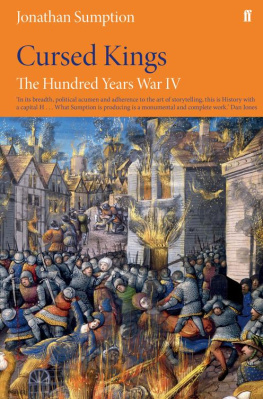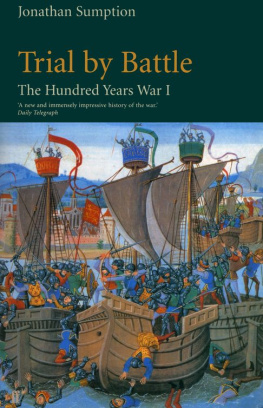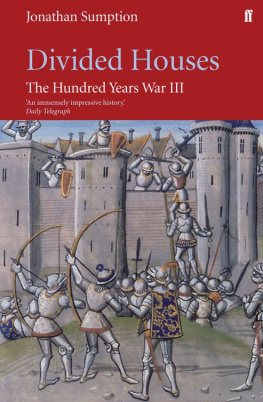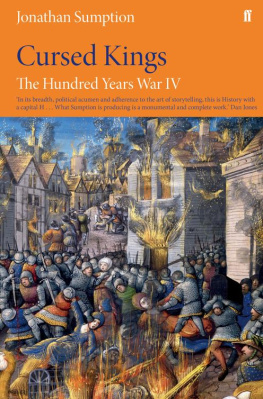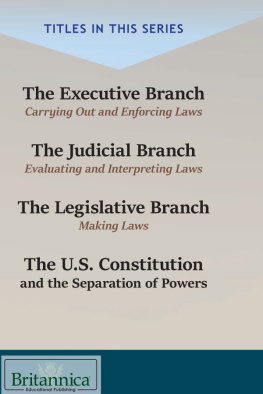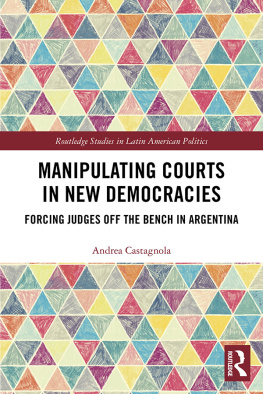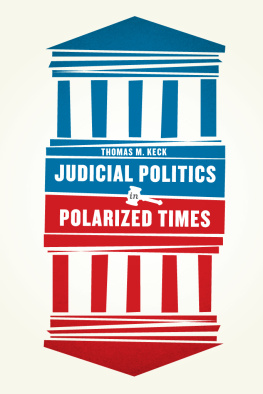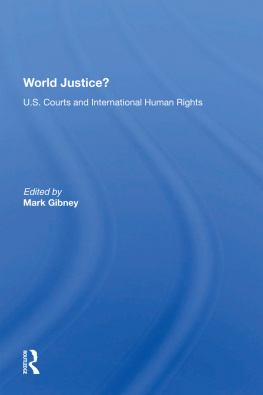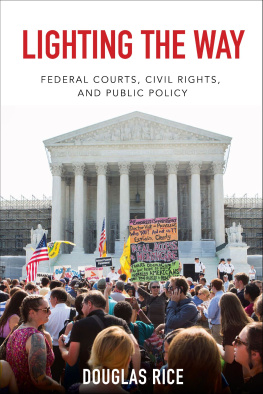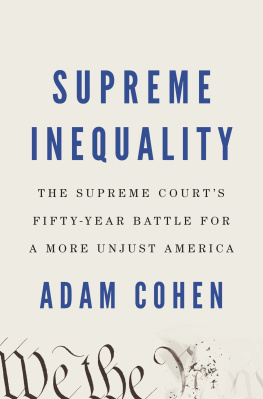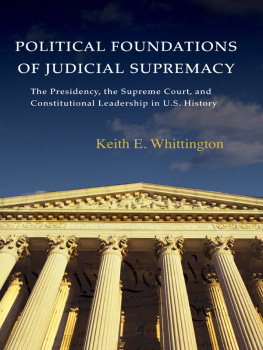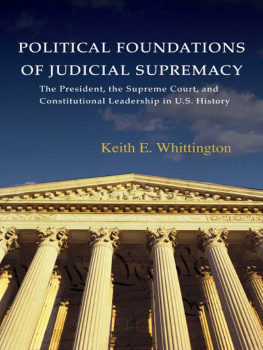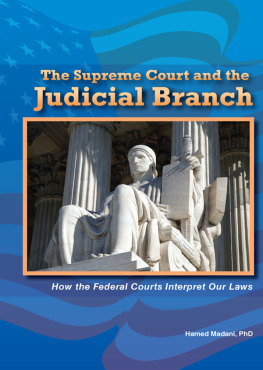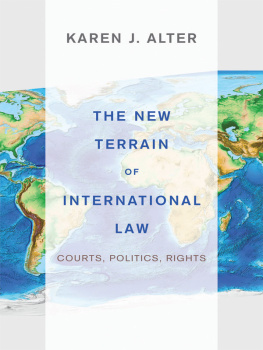TRIALS OF THE STATE
Law and the Decline of Politics
Jonathan Sumption

First published in Great Britain in 2019 by
PROFILE BOOKS LTD
3 Holford Yard
Bevin Way
London
WC1X 9HD
www.profilebooks.com
This book is based on the BBC Reith Lectures 2019,
first broadcast on BBC Radio 4
Copyright Jonathan Sumption, 2019
Cover design: Luke Bird
The moral right of the author has been asserted.
All rights reserved. Without limiting the rights under copyright reserved above, no part of this publication may be reproduced, stored or introduced into a retrieval system, or transmitted, in any form or by any means (electronic, mechanical, photocopying, recording or otherwise), without the prior written permission of both the copyright owner and the publisher of this book.
A CIP catalogue record for this book is available from the British Library.
ISBN 9781788163729
eISBN 9781782836223
To the next generation
Contents
Preface
This book is based on the five BBC Reith Lectures broadcast on Radio 4 in May and June 2019. It substantially reproduces the text of the lectures, with additions and modifications provoked by the discussions which followed, and some expansion of points that could not be accommodated within the half-hour broadcasting slots.
The subtitle, Law and the Decline of Politics, fairly describes the contents. The law is the tool by which the state imposes its will. A lawyers job is to say what the law is. But I am interested in a different and more fundamental question, which lawyers rarely ask themselves. Once we have found out what the law is, what makes it legitimate? Democratic institutions once lent legitimacy to laws, even in the eyes of those who disagreed with them. But for a number of years, public confidence in them has been draining away. The alternatives are some form of autocracy and a regime of judge-made law. Trials of the State presents thoughts which have developed in my mind over a number of years, but which the BBC series prompted me to present in a rather more disciplined form.
We are all prisoners of our own experience. I have passed most of my life in the study and teaching of history and in the work of the English courts. Lawyers live on the margins of politics, whether they like it or not. My own lifetime has witnessed radical changes in Britains internal life and its place in the world, which have had a transformative impact on British politics. These are not claims to universal expertise. But they are not a bad starting-point. After all, none of the questions that I have posed is new. The competing claims of law, ideology and politics to legitimacy have been explored by academic lawyers and political scientists for many years. Britains collective experience of these issues goes back a long way. Our institutions and our legal and parliamentary cultures have the longest continuous history in the world. Yet recent events have tested them. The debates on Britains relations with the European Union have brought to a head many constitutional issues that were latent for years before the referendum of 2016.
I am grateful to Gwyneth Williams, until recently Controller of BBC Radio 4, who invited me to deliver the 2019 Reith Lectures, and to the dedicated and professional team at the BBC, in particular presenter Anita Anand, producer Jim Frank and editor Hugh Levinson. Friends and colleagues with whom I have discussed these questions have contributed more than they can ever realise to the result, although they will not necessarily agree with my views. Some of them were kind enough to criticise early drafts of the lectures, an essential process from which I have gained a great deal. My biggest debt, however, is as always to my wife, Teresa, who has lived with these lectures for almost as long as I have, and saved me from countless obscurities and solecisms.
Jonathan Sumption
June 2019
I
LAWS EXPANDING EMPIRE
In the beginning, there was chaos and brute force, a world without law. In the mythology of ancient Athens, Agamemnon sacrificed his daughter so that the gods would allow his fleet to sail against Troy. His wife murdered him to avenge the deed, and she in turn was murdered by her son. Athena, the goddess of wisdom, put an end to the cycle of violence by creating a court to impose a solution, in what today we would call the public interest: a solution based on reason, on the experience of human frailty and on fear of the alternative. In the final part of Aeschylus great trilogy the Oresteia, the goddess justifies her intervention in the world of mortals in these words: Let no man live uncurbed by law, nor curbed by tyranny. That was written in the fifth century BC. But the message is timeless and universal. Law is not just an instrument of corrective or distributive justice. It is an expression of collective values and an alternative to capricious violence and despotism.
It is a vice of lawyers that they think and talk about law as if it was a self-contained subject, something to be examined like a laboratory specimen in a test-tube. But law does not occupy a world of its own. It is part of a larger system of public decision-making. The rest is politics: the politics of ministers and legislators, of political parties, of media and pressure groups and of the wider electorate. My subject is the place of law in public life. The twin themes which I want to explore are the decline of politics and the rise of law to fill the void. What ought to be the role of law in a representative democracy like ours? Is there too much law? Is there, perhaps, too little? Do judges have too much power? What do we mean by the rule of law, the phrase which so readily trips off the tongues of lawyers? Is it, as cynics have suggested, really no more than a euphemism for the rule of lawyers?
The expanding empire of law is one of the most significant phenomena of our time. Until the nineteenth century, most human social interactions were governed by custom and convention. The law dealt with a very narrow range of human problems. It regulated title to property. It enforced contracts. It protected peoples lives, their persons, their liberty and their property against arbitrary injury. But that was about all. Today, law penetrates every corner of human life. The standard modern edition of the English statutes fills 50 stout volumes, with more than 30 volumes of supplements. In addition, there are currently about 21,000 regulations made by ministers under statutory powers and nearly 12,000 regulations made by the European Union. In a single year, ending in May 2010, more than 700 new criminal offences were created, three-quarters of them by government regulation. That was admittedly a bumper year, but the rate of increase continues to be high.
On top of that, there is the relentless output of judgements of the courts, many of them on subjects that were hardly touched by law a century ago. The powers of the family courts now extend to every aspect of the well-being of children, which once belonged to the enclosed domain of the home. Complex codes of law, enforced by specialised tribunals, regulate the world of employment. An elaborate system of administrative law, largely developed by judges since the 1960s, governs most aspects of the relations between government and the citizen. The special areas which were once thought to be outside the purview of the courts, such as foreign policy, the conduct of overseas military operations and the other prerogative powers of the state, have one by one yielded to the power of judges. Above all, since 2000 a code of legally enforceable human rights has opened up vast new areas to judicial regulation. The impact of these changes can be measured by the growth of the legal profession. In 1911 there was one solicitor in England for every 3,000 inhabitants. Just over a century later, there is about one for every 400, a sevenfold increase.


